An eye on everything
How the Werkself analyst duo work
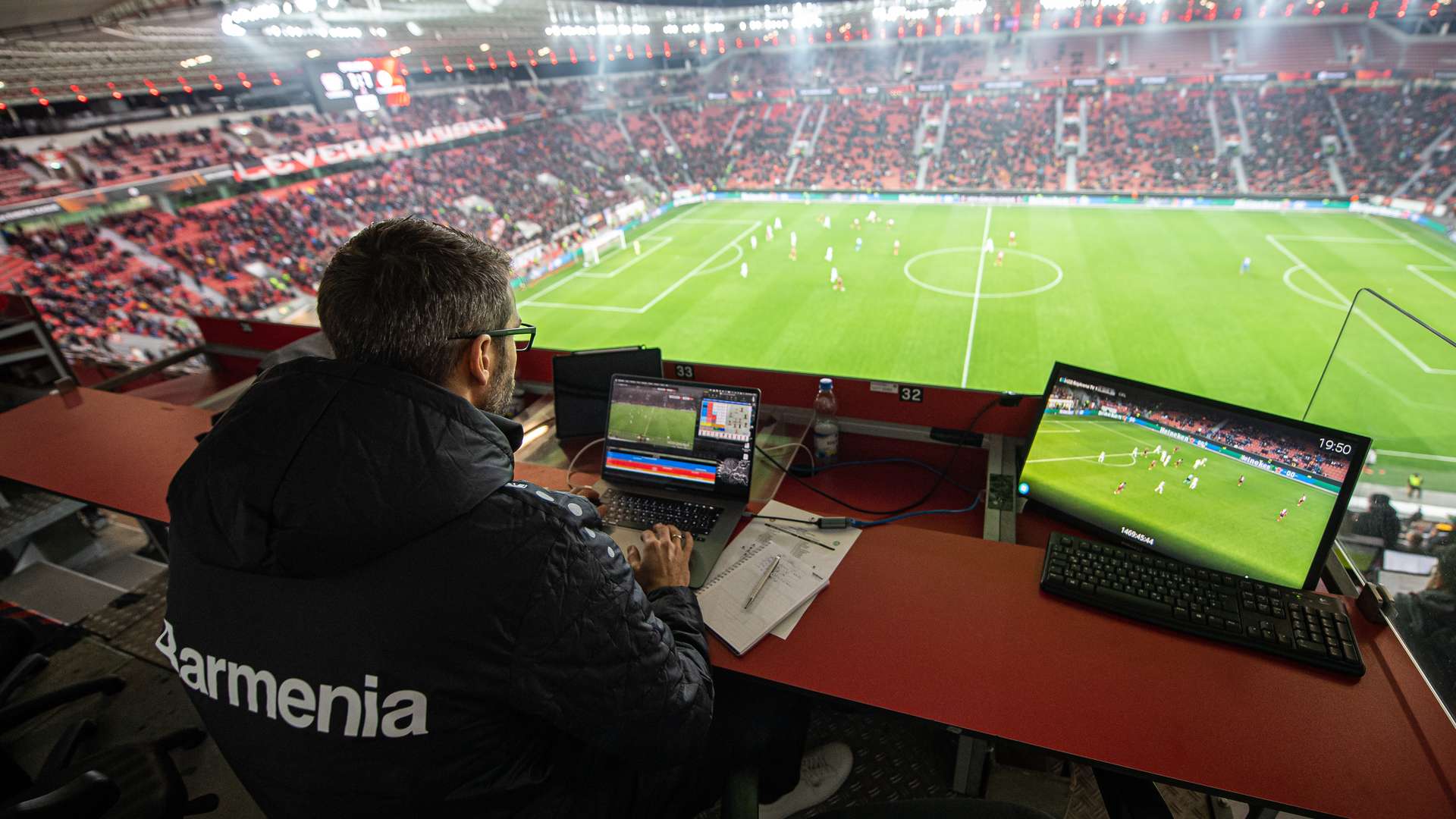
The importance of match analysis has continuously increased in the Bundesliga over recent years. At Bayer 04, the assessment of the live data provided by the German Football League (DFL) for every game is in the hands of Marcel Daum (35) and Simon Lackmann (41). Their insights and analysis provide important information for head coach Gerardo Seoane to make his tactical and personnel decisions both in preparation for games and live during the 90 minutes of a match. Werkself Magazin describes how the analyst duo works using the example of the Europa League match against Celtic (3-2).
Matchday (Thursday, 25.11.21):
During the game against Celtic, Simon Lackmann sits under the roof of the BayArena in his usual video position while Marcel Daum is on the bench between assistant coach Alberto Encinas and sporting director Simon Rolfes. 45 minutes before kick-off, the two of them test their communication link. They are connected during the match via headsets and microphones. Lackmann uses a laptop in his observation position with the match analysis software Sportscode on his screen. He also has a monitor which provides him with the scouting feed. The data comes from an analysis camera that is sited three metres below him. Down on the bench, Daum has a tablet that displays the match information Lackmann has produced.
The duo pay attention to the implementation of the principles for their own team discussed during the week – and also studies the performance of Celtic according to certain criteria: Is the team playing as the coaches expected? What do the Werkself particularly have to look out for when the Scots attack? And, in turn, where can they pose a threat to the opposition? Lackmann relays his position from his birds-eye view, there are short exchanges with Daum, their communication works like clockwork, they use key terms. Exequiel Palacios and Robert Andrich play alongside each other in holding midfield for the first time against Celtic. The distances between them and to the back four have to be corrected for attacks on the opposition. Lackmann communicates that to Daum; Seoane is informed, he gives new directions to the two Bayer 04 players. Lackmann also notes as "proof" in the Sportscode programme on his laptop selected incidents during the first half, which can be shown to the players at half-time on the screen in the dressing room. The coordination between the two holding midfielders has improved, Lackmann and Daum have no need to provide further advice and the head coach is satisfied. Over the course of the game, Andrich becomes the key player with his two goals.
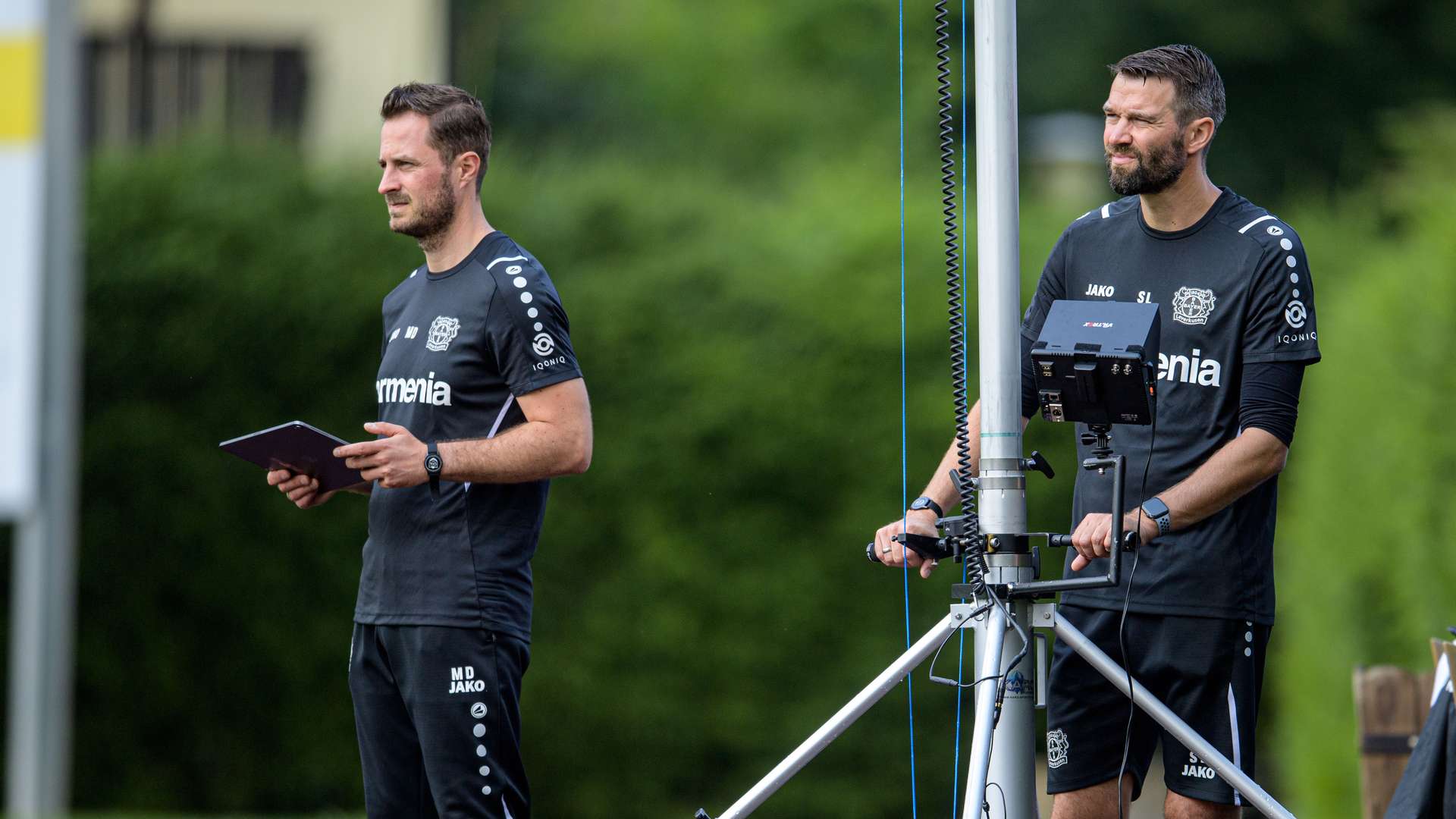
The subject of holding midfielders is not the only area that the analyst duo deal with. Three finishing moves from Moussa Diaby are documented including the opening goal. Lackmann takes notes for the follow-up. Around three and a half hours before the game, the expertise of the coaches is required at the team meeting. "It's a tactics meeting. Everything we prepared for the game against Celtic is presented by the head coach in compressed form," explains Daum. That includes all the work for the week from Daum and Lackmann but also the assessment of the other coaches. The job of the match analysts is not just restricted to matchdays.
Matchday +1 (Friday, 26.11.21):
The video material recorded during the match is processed up to the start of training on the morning after the win against Celtic and progress to the Europa League Round of 16. Seoane discusses the final clips with Daum and Lackmann plus the assistant coaches. Tactical and individual incidents as well as perfect implementation are shown using the video material. "The video footage enables important match situations to quickly be provided into relevant messages for the players in order to improve something or to show what was good," says Lackmann. As Daum emphasises, the focus is usually immediately on the next game, which was away to RB Leipzig on the following Sunday. Matchday +1 after the Celtic game is as important for the analysts as matchday -2 for the fixture in Leipzig. The basis for analysis for the match in Saxony is dealt with by the coaches at the start of the week.
Matchday -3 (Monday, 22.11.21):
Preparations for the match analysis section, including Moritz Laux, Fabian Petschke and Gilbert Gorges in the back office, start three days before the game against Celtic. The first match against Celtic in Glasgow eight weeks before ended in a 4-0 victory. Celtic matches in the league and the Europa League game against Ferencváros are studied ahead of the return meeting. "The basics consist of insights from the first game. We just have to make minor adjustments," says Lackmann.
Preparations for RB Leipzig, the Bundesliga opponents at the weekend, begins at the same time. “We always overlap our work against the next opponents and that means we always look at the following match. It's no different in the weeks with European games," explains Daum. It starts with accessing the in-house database that contains basic information about other teams. "The character profiles roughly determine whether we are dealing with a possession-based team, for example, or a counter-pressing team, a counter-attacking team, a set-piece team or a physical team," explains Daum, who joined Bayer 04 from Eintracht Frankfurt in 2018. "We set up the database 18 months ago. We call it DataBay. It's linked to the raw data we receive from the DFL. In addition, we put together our KPIs."
KPI means Key Performance Indicator, the most important performance parameters of the team (a match is made up of 3.6 million pieces of live data). But the trick is to assess the material, interpret it and produce concrete results and solutions.
Preparing for the opposition is not the main work of the analysis team as dealing with their own players takes up significantly more time. Particularly, in contrast to the Europa League teams, the Bundesliga sides are already well known. Lackmann, who has worked at Bayer 04 since 2009, and Daum have clocked up some 800 matches between them in their role as analysts. "We normally work 20 to 30% on the opposition and 70 to 80% on our own team. We translate every training session into code, split it up into individual parts according to areas of interest. That means we can show the coaches what has worked very well and what needs improving in relation to the next match," says Daum. Everything happens in intensive discussion with the coaches who provide specifications on the one hand but they are also guided by the advice and ideas from the two analysts.
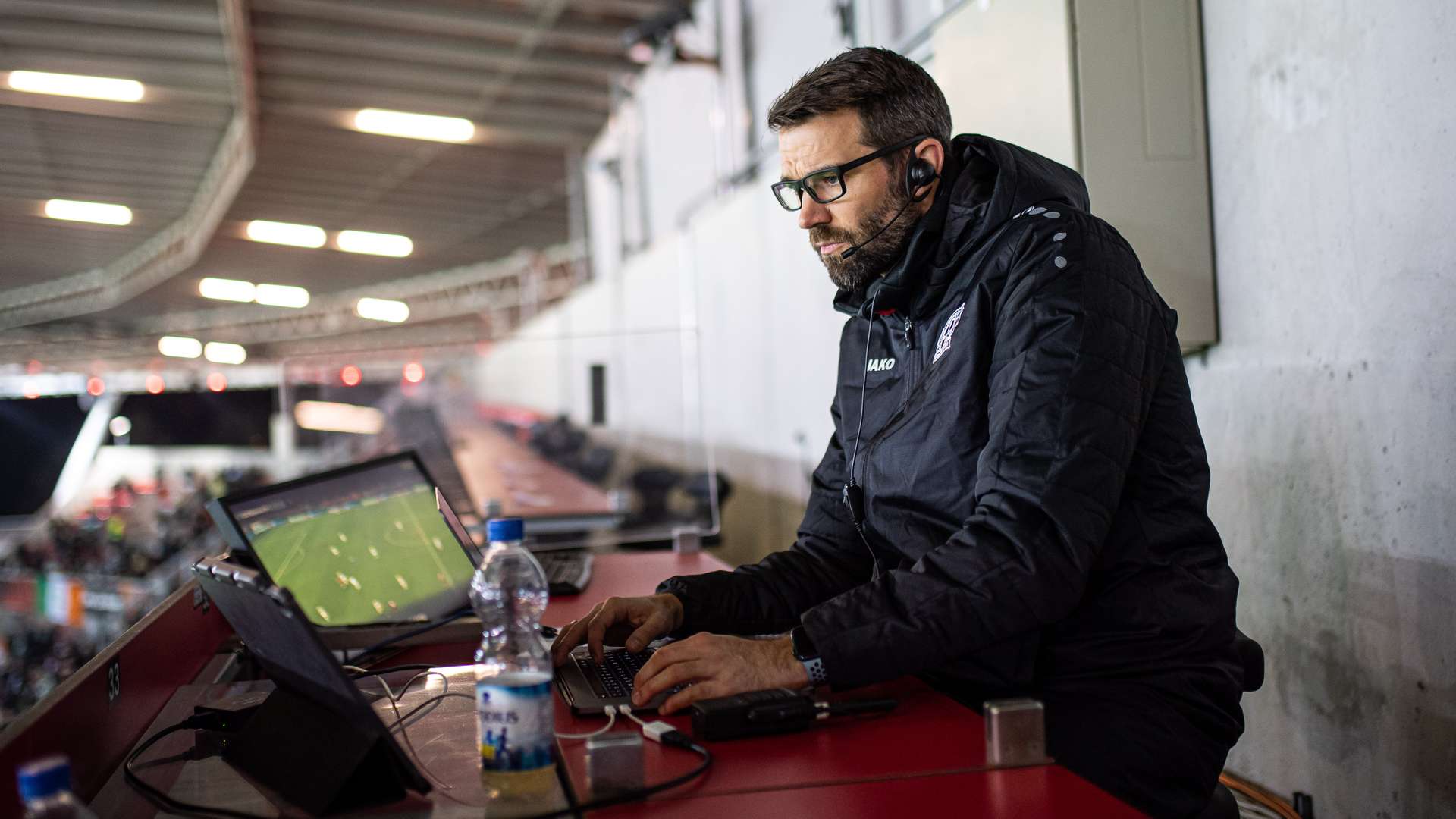

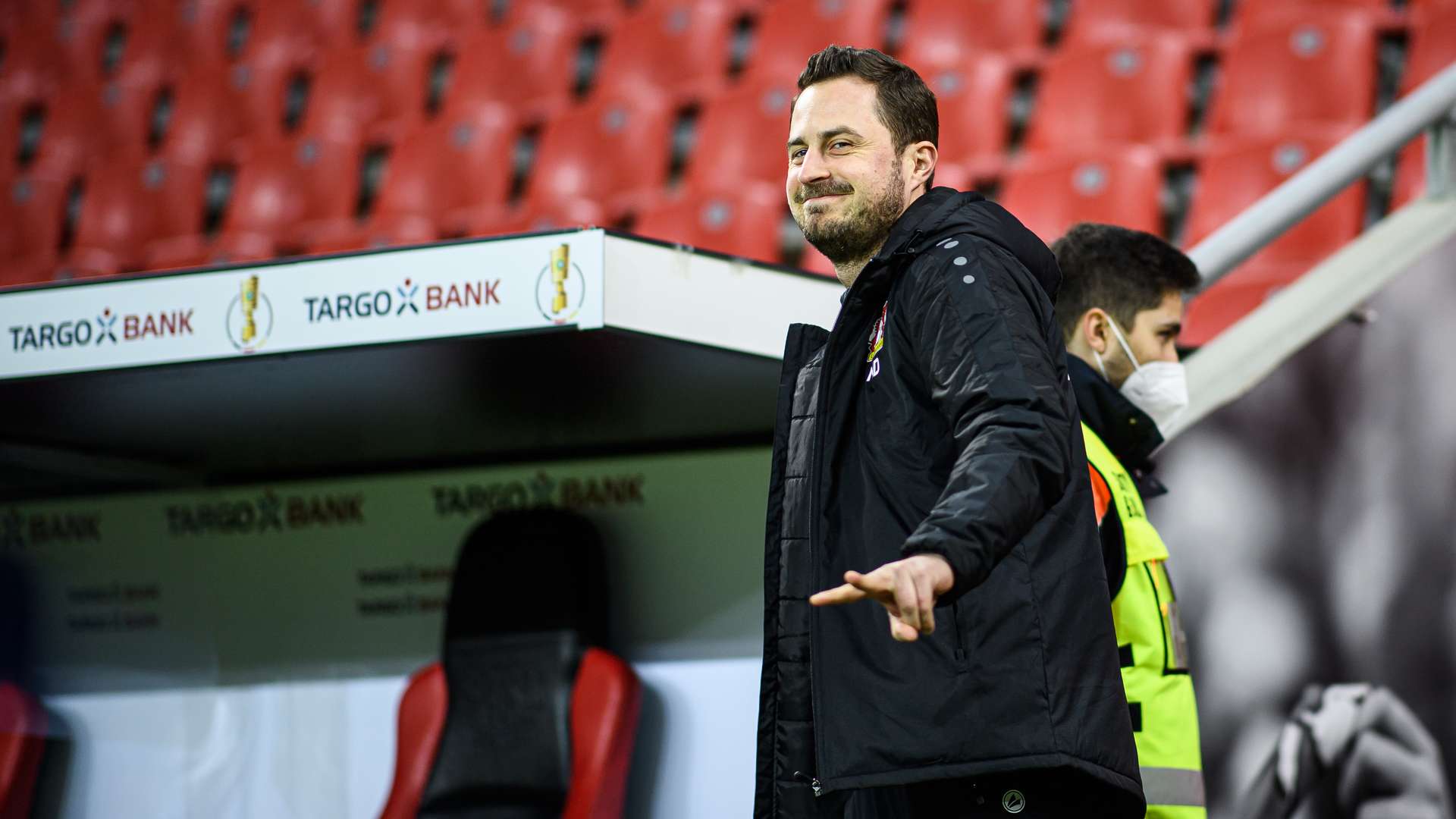
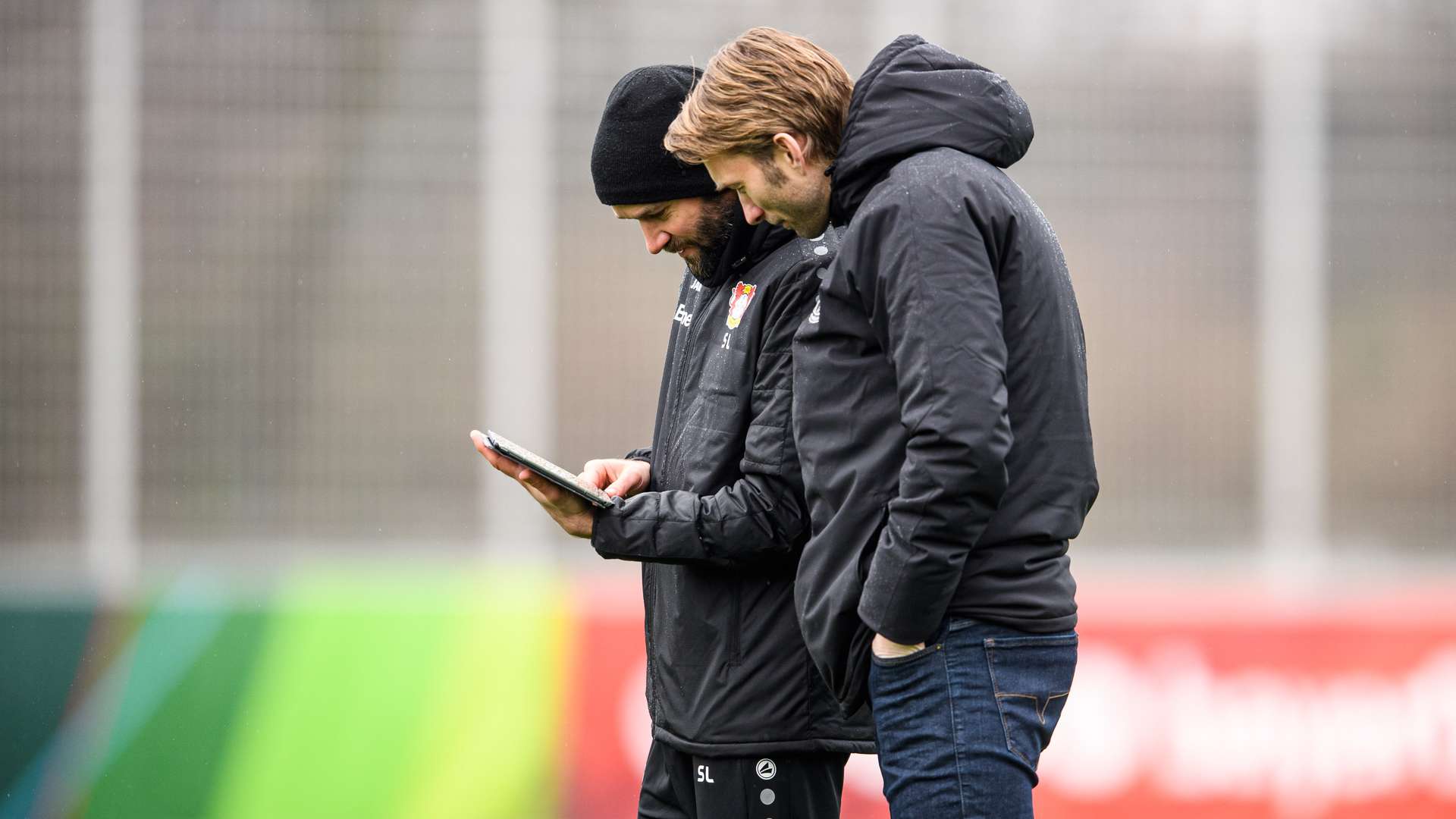
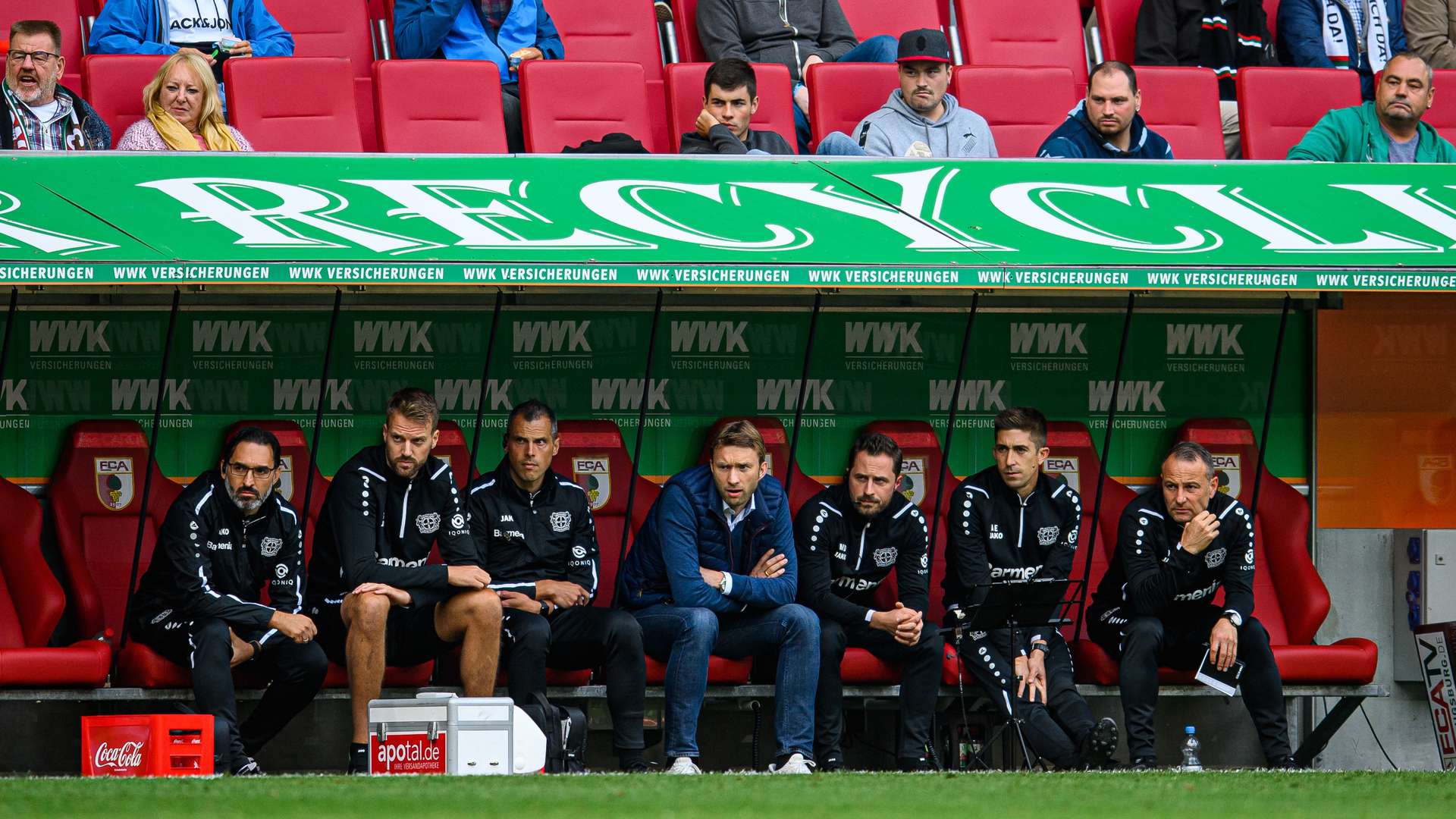
Matchday -2 (Tuesday, 23.11.21):
The analysis is intensified two days before the Celtic match. "That comes more from data and less from video footage. That's how we know which direction it can take in the match," says Daum. Graphics are prepared that show the important insights into each opponent. "The players know the graphics we developed two years ago and we don't have to explain much more to them now," says Lackmann. And video footage is put together. "We have to create a baseline. The easiest way to do that is through facts and figures. But if we want to say Leipzig are the second best counter-pressing team then we have to show that using video footage. And that leads to the question: What do we do with it in the game?," explains Daum.
That's how it worked in the first match against Celtic with tactical analysis leading to success. The build-up to the second goal scored by Florian Wirtz down the right flank was seen as a weak point of the opposition as the Celtic full-backs do not play in the traditional way but unusually come inside and thereby create space. "We in the coaching team pointed out that the side can successfully implement that," says Lackmann. However, the analyst duo will not quantify how big their influence is at the end of the day. Discussions with the coaching staff and producing match plans are a continuous process as is the detailed work where the behavioural patterns of individual players are shown in video clips to provide the Bayer 04 players with individual analysis of their opponents.
Matchday -1 (Wednesday, 24.11.21):
Celtic are now the focus of discussion in the team meeting. Implementation of the planned strategy is fine tuned in the training session. The session is recorded using cameras. This checks whether the players have absorbed their roles. The Werkself players receive general information on the opposition on their mobiles and tablets sent by Daum and Lackmann via an app plus the specific information on opposition players. "Those are all processes that most of them know from the Performance Centre. Some of them look at the information earlier on in some later but generally everybody uses it," says Daum. Players can also access the analysis results in the dressing room and screens. The filtered advice, that can players can observe better on video than through discussions, is not to be seen as fixed instruction as incidents in matches can never be predicted.
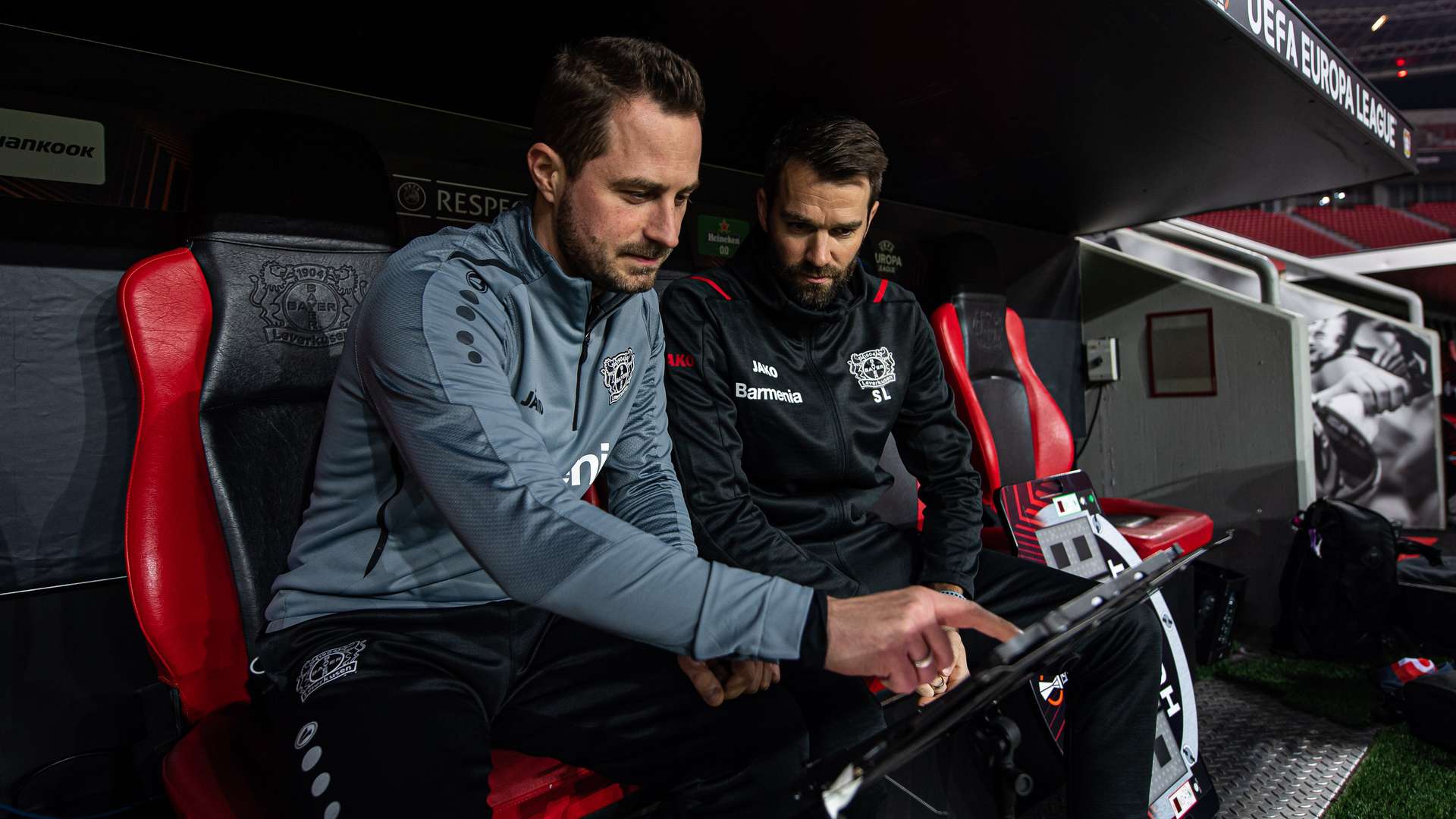
Gerardo Seoane and his assistants are also provided with the Celtic analysis. Studied moves of the opposition, the side they prefer to attack on, defensive susceptibility, the strength of individual players, who takes the set-pieces – everything is prepared for the matchday. Lackmann and Daum even predict the probable Celtic line-up – that is only one position different from the Celtic side that takes the pitch at the BayArena. The matchday comes – and the work pays off: The 3-2 win is a success for the team, all the coaching staff and the analyst duo.
This profile is taken from edition 34 of the Werkself Magazin that appeared in January 2022. Click HERE for the free online copy.
